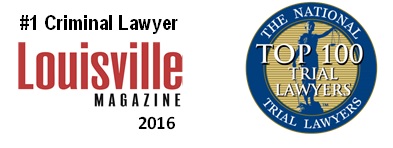LAW’S HARDEST CASE TO DEFEND (THE DRUNK DRIVER)
v.
LAW’S EASIEST CASE TO DEFEND (THE NEGLIGENT DOCTOR)
By John Olash. Imagine defending a doctor accused of medical malpractice and not having the use of an expert witness. Imagine defending a doctor in a medical malpractice case and being prohibited from deposing the Plaintiff’s expert. How many medical malpractice attorneys would dare try a case in which the doctor’s ‘error’ was videotaped? Would a medical malpractice case see a courtroom if the negligent doctor was interrogated by the plaintiff’s attorney before risk management came to the rescue? Welcome to the world of DUI defense. DUI arrests are videotaped. Field sobriety tests and the ride to jail are on video. DUI defendants are videotaped at the jail. DUI defendants are banned by law from independently testing the breath test machine. DUI defendants are interrogated by law enforcement before they speak with their lawyer. While there are more heinous crimes, no offense is more unpopular with the public, the courts, the legislature and of course juries. DUI cases involve constitutional issues, science, statutory analysis, computer software issues, chemistry, biology, neurology, administrative regulations and issues about various fields of medicine and pharmacology. Because of our culture’s collective stance regarding DUI, defending a person accused of DUI is the trial attorney’s most difficult case. If you have an ego larger than a marble stay away from DUI defense work. It is a humbling practice of law.
While at a DUI seminar in Las Vegas a few years ago, a lecturer asked the three hundred plus attorneys in attendance, “I want to see a show of hands of all attorneys who have lost their last three DUI trials.” A smattering of hands were sheepishly raised. The lecturer laughed and announced, “Well at least we have a few real DUI lawyers; if you are winning every DUI trial you are cherry picking fact friendly cases.” In comparison, defending a negligent doctor suit is at the opposite end of the challenge spectrum. The medical malpractice lawyer must only be a thorough box checker to consistently win. There is a tried and true method of defense for the doctor defendant which is virtually foolproof. Defending a negligent doctor is law’s easiest job. Juries work overtime to save a doctor. The doctor defendant is highly educated, articulate, a solid historian and revered in the community; DUI defendants not so much. DUI defendants cannot remember why they were stopped, if they blew, how many drinks they had or witness names. DUI clients provide little assistant in trial preparation or witness value. DUI defendants are the scorn of the community; doctors are the heroes. Every mother wants her son to be a doctor. With DUI, mothers join MADD. Medical malpractice defendants spend thousands of dollars in trial preparation. Most DUI defendants cannot afford to take off work. In my twenty two years of practicing I have had only four DUI clients who could afford to retain an expert witness. An expert in breath test machines will charge over $2,000.00 to appear in court. Most DUI defendants cannot afford to pay a lawyer the expense of a jury trial. Over 3000 DUI cases are prosecuted in Jefferson County each year and less than thirty go to jury trial. Why such a low number? DUI trials are perceived as impossible to win, and frankly some are.
On average the DUI statute is amended every four years with pro prosecution law. Legislative changes always bring additional hurdles and hardship for the DUI lawyer. Constitutional exceptions eliminate fundamental rights for the DUI defendant. Doctors enjoy constitutional rights; DUI defendants do not. Miranda rights, which protect rapists, drug dealers and murderers, do not exist for DUI defendants. Miranda prohibits the government from using a defendant’s statement given in custody in response to police questioning unless the accused was informed of his basic rights. In Berkemer v. McCarty the United States Supreme Court ruled that police are not required to read DUI suspects their Miranda rights until sometime later. In the decision the Supreme Court did not specify when Miranda rights should be read, just sometime later. Despite Miranda’s clear directive, the US Supreme Court inexplicably determined that a motorist ordered out of his car by the police is not in custody and thus the driver can be questioned about his drinking and driving without being read Miranda.
The Sixth Amendment guarantees an accused a right to an attorney; the Fifth Amendment protects suspects from self incrimination. Police always question DUI suspects regarding alcohol consumption, medication, whereabouts and car operation after the accused is in custody, despite the Fifth and Sixth Amendment.
In DUI the presumption of innocence is watered down. Sentencing begins at the arraignment. Once a defendant pleads not guilty a mandatory license suspension is imposed if the accused refused the breath test. On DUI Second Offense the trial court imposes a sentence at arraignment by suspending the accused’s license regardless of whether the defendant took a breath test.
The typical defense in a medical malpractice case is that the Plaintiff’s injury resulted from a known complication. Doctors enjoy an affirmative defense with a known complication option. Taken to its extreme just about any doctor mistake can be labeled as ‘known complication’. There is no comparable escape hatch for the drunk driver. DUI defense is based on pure denial.
For the negligent doctor the defense foundation has been laid even before the tortious act. For 30 years the insurance industry has spent millions of dollars on misinformation regarding medical malpractice claims. Propaganda gives the medical malpractice lawyer a giant head start at trial. Propaganda has misled the public into believing doctors are leaving the state because they cannot afford insurance. The insurance industry has scared the public into believing courts are bogged down with frivolous malpractice suits. Courts are not bogged down by medical malpractice cases. Drug cases and divorces cases overwhelm the judicial system. Only one time in my twenty two years of practice have I had a trial continued due to a medical malpractice case. The public’s misconception about frivolous claims causes jurors to dislike the person who sues their doctor. Jurors believe doctors are retiring because of the threat of frivolous suits and they cast their vote accordingly. My father and both my brothers are doctors; my wife is a pharmacist. I know many doctors. I am not aware of a single physician who retired because of the threat of frivolous suits. If your primary goal as a lawyer is to win lots of jury trials, the best place to be is next to a doctor in the courtroom. The last place to be is next to a DUI defendant. A recent study of prospective jurors nationwide discovered that 85% of jurors in a medical malpractice case believed the doctor, not the patient, was the victim.
Prospective jurors in DUI cases do not position themselves for cause strikes, they practically volunteer to sit so they can convict a drunk. Agenda driven DUI jurors are ready to impose a sentence before opening statements. This is so because drunk drivers pose a real danger to jurors. Agenda driven and fearful jurors deliver guilty verdicts. Negligent doctors do not pose a perceived danger to jurors. However, an injured plaintiff poses a risk to jurors through increased healthcare costs.
Early in my career I attended an ethics seminar regarding alcoholism. The speaker was a successful medical malpractice defense lawyer. He said for years he fooled himself into believing his chronic drinking was not a problem because he consistently won defense verdicts. He actually delivered a winning closing argument for a doctor while drunk. It was not until his personal life imploded that he realized the depth of his addiction and got help. He joked that defending doctors accused of negligence was only slightly more difficult than falling off a log.
DUI is not a joking matter. DUI trials can be lost in voir dire. In a jury panel of a typical DUI case, a third of the prospective jurors do not drink alcohol, four or five jurors have law enforcement connections, a handful are MADD members, a couple of jurors have been convicted of DUI and all the jurors erroneously believe it is illegal to drink alcohol and later drive a car. Jurors who have a DUI conviction favor the government because they plead guilty to their DUI and expect the defendant to do the same. Some jurors proudly volunteer they do not drink because they are Christians. The DUI jury is primed to convict before the first witness is sworn. In a medical malpractice case the opposite is true. Jurors enter the courtroom programmed to favor the doctor. Jurors believe too many medical malpractice cases are filed, most suits are frivolous and many patients bring a medical malpractice case in the hopes of winning the lottery. Jurors’ identification with the doctor paves the road to a defense verdict.
The right to cross examine is virtually non-existent in a DUI Per Se case. The Kentucky Supreme Court has ruled a defendant is not allowed access to the breath test machine software. CMI, the manufacturer of the breath test machine, will not honor a subpoena. Under Kentucky’s Per Se statute the prosecution is not required to prove intoxication or impairment. The Per Se statute only requires the prosecutor to prove that the defendant’s blood alcohol level was at or over .08 within two hours after the time of driving. The Per Se statute prohibits driving a vehicle with an alcohol level at or over .08 of the driver’s breath or blood. In most cases the police officer stops the motorist while he is driving which leaves the defendant with only one possible defense; he must challenge the accuracy of the breath test. The problem is the courts do not allow defendants an opportunity to test the breath machine. Courts will not permit an independent test of the BA machine. In 2007 a Lexington DUI defendant subpoenaed the source code for the breath test machine. The source code is the software program in the breath test machine that quantifies data obtained from a breath sample. The source code would reveal how the machine measures mouth alcohol and other compounds. The Kentucky Supreme Court ruled that the defendant cannot access the source code absent a showing that the machine is flawed. This ruling placed an impossible burden on the DUI defendant. It is impossible to establish the fallibility of the BA machine without first having an opportunity to study the machine. The court’s ruling in essence denied the accused his right to cross examination on the only possible defense. The ruling is inconsistent with a long history of both Kentucky and federal law granting an accused a right to independent testing. Independent blood testing, fingerprint testing, firearms testing, computer testing and drug testing by the accused has always been allowed without first requiring the accused prove the government’s test was flawed. The Supreme Court ruling is fatally egregious in a DUI Per Se case because the corpus delicti in a Per Se case is the BA reading. To have any chance at trial the defense attorney must prove the breath test result is inaccurrate. Consider how a medical malpractice defense attorney would handle a similar challenge: The plaintiff’s expert conducts a test and the results conclusively establish that the doctor breached the standard of care and caused a permanent injury to the plaintiff. The doctor’s attorney motions the trial court for the records produced by the plaintiff’s expert. The trial judge overrules the doctor’s motion in holding “The motion is unreasonable and oppressive and to obtain the expert’s records the doctor must first prove the plaintiff’s test was flawed.” Does this case go to trial or does the doctor settle? This scenario would never occur because courts would not allow such a miscarriage of due process. With DUI this type of due process denial occurs everyday. In the DUI defense world due process is on life support.
In medical malpractice cases doctors enjoy the protection from Informed Consent. In DUI, drunk drivers are tricked by Implied Consent. When a person is arrested for DUI he is taken to the jail and requested to submit to a breath test. Prior to requesting a breath sample the police officer must read the accused the Kentucky Implied Consent Statute. The statute presumably advises the defendant about his right to refuse the test and the legal consequences of a refusal. The problem with the Implied Consent Statute is the warning inaccurately quotes state law and misinforms the accused regarding the consequences of a refusal. The Implied Consent Statute tricks the accused by erroneously threatening that a refusal of the breath test will subject the accused to a mandatory minimum jail sentence which is twice as long as the mandatory minimum jail sentence if he submits to a test. This threat is nonsense. Kentucky law does not impose a mandatory minimum jail sentence for first time offenders. The Kentucky Supreme Court recognized the defectiveness of the Implied Consent Statute and conceded drunk drivers are not all subject to mandatory minimum jail time. However, the Court excused this statutory blunder, characterized it as ‘defect’ and held it does not rise to a violation of a constitutional right.
Chain of custody rules require that before evidence is admitted in court an identifiable person who handled the physical evidence must testify regarding his control of the evidence. Chain of custody rules are simple evidentiary law. However, chain of custody law is inapplicable to DUI defendants. In Matthews v. Commonwealth, the prosecution could not produce the person who drew the DUI defendant’s blood. The police officer ‘believed’ the person was a nurse. The defendant could not prove anything was wrong with the blood test. The defendant just wanted proof that the blood tested at the lab and used against him in court was actually his blood. The Court’s opinion referenced something called the presumption of regularity and determined that the defendant would have been convicted even without the blood evidence. The Court’s ruling placed an impossible burden of proof on the defendant by requiring him to show how a missing witness’ absence affected the integrity of the blood evidence.
In closing there is one more salient distinction between DUI and medical malpractice defense worth noting. Trial lawyers naturally tend to take all the credit for favorable verdicts and blame others when they lose. It’s easy to blame the judge, dishonest opposing counsel, the client or even (gasp) the jury for a loss. Unlike a murder case, theft case, auto accident case or medical malpractice case, when a jury acquits the DUI defendant the verdict belongs exclusively to the attorney. DUI trials cannot be won solely by an expert witness, a box checker defense or a slick closing argument. DUI trials are won on cross examination and jury selection. The trial lawyer is solely responsible for cross examination and voir dire. Despite what most trial lawyers narcissistically believe, trials are not won by exposing the weaknesses of the other party’s case. Trials are won by the strength of your case. The cardinal rule of trial work is do not rely on cross-examination to win your case. Direct examination is the most important part of any case. These cardinal rules do not apply to DUI trials. To win a DUI trial the lawyer must cripple the government’s case through cross-examination. Medical malpractice verdicts, on the other hand are won on expert testimony. Medical malpractice verdicts are won by the doctor’s testimony or by the jury’s innate skepticism of the plaintiff’s claim. The med mal defense lawyer is merely a facilitator. Medical jargon and complex health histories of the plaintiff cause a defense verdict more than skillful lawyering. The med mal lawyer never leaves the courtroom after a defense verdict with the feeling ‘no other attorney would have even taken this case to trial much less won it.’ DUI defense lawyers are acutely aware of that feeling. Many trial judges have asked me as the jury was called for voir dire “Olash, why are you trying this case?” My answer is “If my client pleads guilty he has a 100% chance of losing. A jury gives him better odds.”
I admit I was one of the lawyers who lost three straight DUI cases. Unlike a medical malpractice case, DUI defendants often go to trial without a defense. In other words we play for a fumble. I must tell my client before trial if the prosecution puts on a “C” case we will lose. It’s just that simple and that difficult. For the UPS pilot, Merke drug rep or Pepsi truck driver a DUI conviction means the end of a career. So you go to a gun fight armed with a rock. As my friend Donald Heavrin advised me years ago “when you walk down the alley and are surrounded by the Bloods and Crips, all armed to the gills, you pick up a rock and fight.” When the jury foreman announces “guilty” my head drops and I promise myself I will never try another DUI case again. I relive the same feeling that overwhelmed me as a boy when I got my head handed to me in sports. I just want to take my ball and go home. The pain that accompanies the finality and rejection of a guilty verdict brings out the quit in me. Fortunately, the passage of time provides a more focused perspective, the quit dissipates and I coach myself to try again. Part of me still believes only losers take solace in giving it your best effort and providing your client his day in court. I know my client does not care about my career or trial history; my client only cares about one verdict, his. With DUI defense, the reality is a trial attorney can only guarantee the client his day in court.








